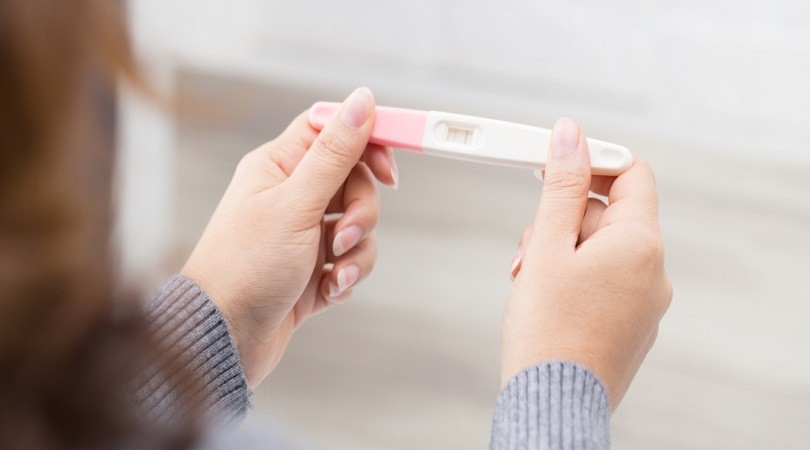Last Updated on January 6, 2025
Heat can potentially ruin a pregnancy test due to its effect on the test components. When exposed to high temperatures, the test may become inaccurate or produce false results, leading to confusion and uncertainty for the user.
How Heat Exposure Can Affect Pregnancy Test Results
The Impact Of Heat On Pregnancy Test Accuracy
When it comes to pregnancy tests, accuracy is of utmost importance. Heat exposure can play a significant role in affecting the reliability of pregnancy test results. High temperatures can alter the test components or cause them to degrade, potentially leading to false positives or false negatives.
Understanding the impact of heat on pregnancy test accuracy is crucial for anyone looking to obtain accurate results. In this section, we will discuss the factors to consider when storing pregnancy tests and the optimal temperature range for their storage.
Factors To Consider When Storing Pregnancy Tests
To ensure the reliability of pregnancy test results, it is essential to store the tests properly. Here are several factors to consider when storing pregnancy tests:
- Keep them in their original packaging: It is best to store pregnancy tests in their original packaging to protect them from heat and humidity.
- Choose a cool and dry location: Find a place in your home that is away from direct sunlight, heat sources, and moisture. Bathrooms, for example, tend to be humid and can expose the tests to moisture that might affect their accuracy.
- Avoid extreme temperatures: Extreme heat or cold can damage the test components or cause them to deteriorate. Avoid storing them in places like the car or fridge, as these temperatures may alter the test’s reliability.
- Check expiration dates: Always check the expiration dates on pregnancy tests before use. Expired tests may yield inaccurate results, regardless of their storage conditions.
Understanding The Optimal Temperature Range For Pregnancy Test Storage
Pregnancy tests are typically designed to be stored and used within a specific temperature range. Here’s what you need to know about the optimal temperature range for pregnancy test storage:
- Room temperature is ideal: Most pregnancy tests perform best when stored at room temperature, which typically ranges from 68°f to 77°f (20°c to 25°c).
- Extremes can impact accuracy: Exposing pregnancy tests to temperatures outside the recommended range can affect their accuracy. High temperatures can cause test components to degrade, leading to inaccurate results.
- Follow manufacturer instructions: It is crucial to read and follow the manufacturer’s instructions for temperature storage. Some tests may have specific temperature requirements, so be sure to comply with those guidelines for the most accurate results.
Heat exposure can indeed impact the accuracy of pregnancy test results. By considering factors such as proper storage, avoiding extreme temperatures, and adhering to the recommended temperature range, you can increase the likelihood of obtaining reliable results. Remember, always read and follow the instructions provided by the manufacturer to ensure the highest level of accuracy when using a pregnancy test.
The Science Behind Pregnancy Test Reactions To Heat
—————————————————————
Can heat ruin a pregnancy test? That’s a common question among women who are relying on a pregnancy test to determine whether they’re expecting or not. While it’s important to store and use these tests correctly to ensure accurate results, the effect of heat on pregnancy tests can be quite significant.
In this segment, we will explore the chemical reactions in pregnancy tests, discuss the impact of high temperatures on test chemistry, and understand why heat can lead to false positives or false negatives.
Exploring The Chemical Reactions In Pregnancy Tests
Pregnancy tests work by detecting the presence of a hormone called human chorionic gonadotropin (hcg) in a woman’s urine. When the test strip comes into contact with urine, it reacts with hcg to produce a result. However, this reaction is a delicate process and can be affected by external factors such as heat.
Here’s what happens during the chemical reactions in pregnancy tests:
- The test strip contains antibodies that are designed to bind specifically to hcg.
- When urine is applied to the test strip, the antibodies in the strip attach themselves to any hcg present.
- This interaction between the antibodies and hcg triggers a color change in the test strip, indicating a positive result.
The Effects Of High Temperatures On Pregnancy Test Chemistry
Heat can have a significant impact on the chemical reactions that take place in a pregnancy test. Here are some key points to consider:
- High temperatures can cause the test strip to deteriorate, affecting its ability to detect hcg accurately.
- Heat can alter the composition of the antibodies on the test strip, making them less effective in binding to hcg.
- Exposure to heat can also accelerate the breakdown of hcg molecules, reducing the chances of a positive result.
- Extreme heat can result in the denaturation of the proteins in the test strip, rendering it completely ineffective.
Why Heat Can Lead To False Positives Or False Negatives
When a pregnancy test is exposed to high temperatures, there is a risk of obtaining inaccurate results. Here’s why:
- High temperatures can cause the test strip to show a false positive result, even when the person is not pregnant. This can happen due to the deterioration or alteration of the antibodies on the strip.
- Conversely, heat can also lead to false negatives, where the test strip fails to detect the presence of hcg, even if the person is pregnant. This can occur if the heat deteriorates the test strip or breaks down the hcg molecules.
It’s crucial to handle and store pregnancy tests properly to avoid any potential damage from heat. Always be mindful of the storage instructions provided with the test and store them in a cool, dry place. By doing so, you can ensure that the chemical reactions in the pregnancy test remain accurate, providing reliable results when you need them the most.
Frequently Asked Questions On Can Heat Ruin A Pregnancy Test?
Can Heat Affect The Accuracy Of A Pregnancy Test?
Yes, heat can potentially affect the accuracy of a pregnancy test by degrading the test’s chemicals and components.
How Does Heat Impact A Pregnancy Test?
Heat can cause the test to malfunction, leading to false negative or positive results.
What Temperature Range Can Damage A Pregnancy Test?
High temperatures above 90 degrees fahrenheit can potentially damage the components of a pregnancy test.
Does Leaving A Pregnancy Test In A Hot Car Ruin It?
Leaving a pregnancy test in a hot car can expose it to extreme temperatures, potentially leading to inaccurate results.
How Should I Store A Pregnancy Test To Protect It From Heat?
To protect a pregnancy test from heat, store it in a cool, dry place away from direct sunlight and extreme temperatures.
Conclusion
It is important to take proper storage precautions when it comes to pregnancy tests. Exposure to extreme heat can potentially damage the test, leading to inaccurate results. Heat can cause the chemicals on the test to degrade or denature, which may affect the test’s reliability.
To ensure accurate results, it is recommended to store pregnancy tests in a cool, dry place away from direct sunlight and high temperatures. It is also advisable to check the expiration date before using any pregnancy test. If a test has been exposed to extreme heat or is past its expiration date, it is best to discard it and use a new one.
Remember, accuracy is crucial when it comes to pregnancy tests, and taking the necessary precautions can help ensure reliable results.











